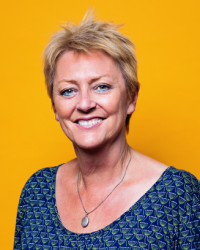Coping with feelings of loss
We don’t talk about death so much these days. As we’re all living longer, some people are lucky enough not to lose someone close until they’re in late middle-age. Though this is great, it means that many of us have absolutely no idea what to expect. Bereavement brings such a confusing mixture of conflicting emotions and feelings that many people fear they’re going mad. They have no idea what’s normal.
As a result, many people come to counselling because they think what they’re feeling is unusual, especially if they know other bereaved people who are behaving differently. Of course, there is no such thing as ‘normal’. We all respond differently to loss, and all have different ways of adjusting. In the early days, it’s not unusual to both believe and disbelieve that the loss has happened. People often experience physical symptoms; someone told me she felt as though her body had been invaded, with a rock in her stomach and episodes of trembling and diarrhoea. It’s also surprising that we can be enjoying sharing happy memories one moment and be struck to our knees with overwhelming grief the next. This to-ing and fro-ing of emotion is natural.
It’s completely okay, too, to ‘take time off’ from the grief and do something fun and distracting. Though sometimes people feel guilty about doing this, it’s actually very healthy, and bereaved children often do it naturally. Indeed, no one is entitled to judge how someone else manages their grief. Doing what your instinct tells you to do is much more helpful than trying to achieve a ‘right’ way of behaving which actually doesn’t exist.
A sudden and unexpected death can be incredibly hard to take in, and may make the world feel less safe. On the other hand, the ending of a long illness may bring a sense of relief both for the person whose suffering has ended and for the bereaved whose own lives may have been on hold.
As time passes, and the reality of the loss sinks in, many people reassess their lives and their position in the world. Bereavement often brings a sense of our own mortality and sometimes encourages people to make the most of their time, be more adventurous or do something to honour the person who’s gone.
It’s very likely you’ll swing backwards and forwards in terms of mood and distress for months or even years. Triggers for grief are often surprising, which can make people feel vulnerable and uncertain.
Advice to expect the unexpected may be helpful. It’s also important to realise that there’s no timescale for managing grief. However, hanging onto grief as a way of staying close to the person whose loss can actually stop you from getting them back. The end of their lives only accounts for a tiny part of your experience with them. Once you can let yourself live again, your loved one will become available to talk to and remember fondly, as if your mind has unlocked the relationship, which has been frozen.
Sometimes, people are pleased with the way they seem to be doing only to be hit months or years down the line with delayed grief that they’ve avoided. There may be good reasons for saving grief until one is more able to deal with it, so no one should feel they’ve got it wrong if this happens.
Sometimes there is an issue associated with the loss which prevents people from grieving effectively. This may be some sort of unfinished business with the person or a belief that someone won’t cope without the lost person. It may be that other losses which haven’t been fully addressed become caught up with this loss, making it seem as fresh as ever decades later. EMDR and cognitive behavioural therapy can be particularly appropriate interventions to help with this sort of stuckness, whereas other talking therapies or befriending services are helpful at the time of a loss and subsequently when people are making sense of the world again and working out how they’ve changed. It’s too early to do this in the immediate aftermath of a loss, so it’s not uncommon to dip in and out of counselling. Not everyone needs or wants to but, if you do feel it might help, why wait?

Find a therapist dealing with Bereavement
All therapists are verified professionals






